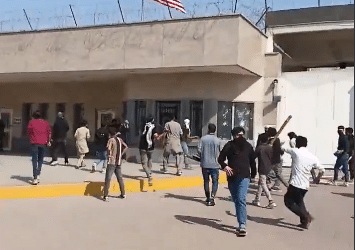Tensions between Russia and Azerbaijan have reached new highs following a dramatic series of arrests and retaliatory actions. The latest flashpoint came after a raid by Russia’s FSB in the city of Yekaterinburg, which targeted ethnic Azeris. In total, 50 individuals were arrested in connection with what Russian authorities claim is a reopened investigation of organized crime and cold cases dating back to the early 2000s. The situation reached a boiling point when two of the detainees died in custody.
In a highly charged press conference, Adalat Hasanov, the Director General of Forensic Medical Examination at Azerbaijan’s Ministry of Health, alleged that the two brothers who died had been “beaten and tortured to death.” The remarks have sparked outrage across Azerbaijan, where many view the arrests as politically motivated and ethnically targeted. Six of those arrested remain in pretrial detention, while diplomatic fallout between the two countries has begun to mount.
In a retaliatory move, Azerbaijani authorities arrested several Russian journalists affiliated with Sputnik television, a state-owned Russian media outlet. Though no official charges have been made public, Baku has cited “national security concerns” as justification for the detentions, with some local commentators speculating that they may have had ties to Russian intelligence.
This is not the first major incident to strain relations between the two countries in recent months. In December 2024, 38 people were onboard a commercial flight when a Russian Pantsir air defense system shot down an Azerbaijani airliner.
Russia and Azerbaijan have shared a pragmatic, if uneasy, partnership in recent years. The Russian military has patrolled the volatile Nagorno-Karabakh region in support of the Azeri enclave. Azerbaijan is also a key transit point in the North-South Transport Corridor, which connects Russia to markets in Iran, India, and beyond. With extensive infrastructure running through Azerbaijani territory, the country has become a vital node in Russia’s efforts to bypass the Western sanctions that were imposed after the invasion of Ukraine.
Yet the geopolitical landscape is shifting. Azerbaijan is drawing closer to Turkey, a NATO member. Joint projects in drone technology and ammunition production underscore a growing military-industrial alignment. Ankara has long been a political and cultural ally of Baku, but the deepening cooperation now appears to carry strategic weight as Azerbaijan maneuvers between competing global powers.
Meanwhile, regional rival Armenia is openly exploring a different path— potentially joining the European Union.
Connor White is a freelance writer with an interest in the intersection of economics and international affairs. Born and raised in Kansas, he graduated from UC Davis in 2023.
































